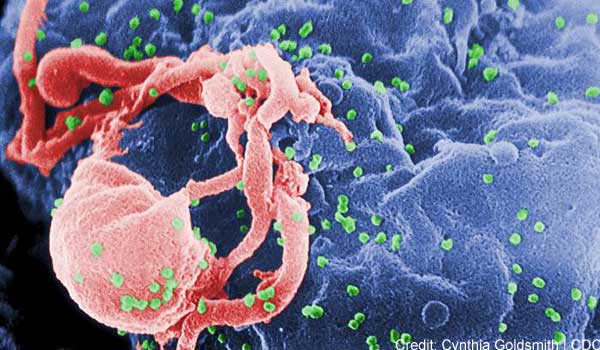HIV Tests at the Dentist Could Reduce Disease Spread

SAN FRANCISCO – Some dentists not only check your teeth, but also take a swab along your gum line to test for HIV. And a new way of offering the test may boost its acceptance in patient's eyes, dentists say.
Dentists hope the practice can reduce the number of people who are infected with HIV and don't know it, and in turn, decrease disease spread.
"Why not offer the testing at a dental clinic and be another portal of entry to the system," said Calix Ramos-Rodriguez, a dentist at Lutheran Medical Center in Brooklyn, NY. "Because by doing so we can catch people that are HIV positive really early in the game; we can really save lives," Ramos-Rodriguez said.
Opt-out vs. opt-in
Although HIV testing in dental clinics has been around for several years, the practice is not widespread, Ramos-Rodriguez said. Lutheran Medical Center is one of the first in the nation to offer the test through an "opt-out," system rather than "opt-in." This means patients are told they will get the test as long as they have no objections, rather than asked if they would like it.
Using the opt-out approach, the center saw a 30 percent increase in the number of people accepting the HIV test along with dental care, according to the results of a study presented here this week at the American Public Health Association's annual meeting.
This is likely because the approach decreases the stigma attached to HIV testing, Ramos-Rodriguez said. If people are asked if they would like an HIV test, they may think they are being singled out, or stereotyped, as someone who needs a test, he said. In a separate survey, Ramos-Rodriguez found that patients don't have a problem with being asked by their dentist to take an HIV test if the test is offered through an opt-out approach.
Sign up for the Live Science daily newsletter now
Get the world’s most fascinating discoveries delivered straight to your inbox.
A change in New York law, which says patients do not need a written agreement or counseling before an HIV test, makes it possible to use the opt-out method, Ramos-Rodriguez said. Dentist visits can provide an opportunity to care for people who do not regularly see a doctor, Ramos-Rodriguez said, adding that about half of the people who visit the dentist do not have a medical provider.
"If you think about it, people can live with knee pain, a headache, a cold — they cannot live with a toothache," Ramos-Rodriguez said.
So far, the researchers have tested about 460 people for HIV using the opt-out method. Seventy-three percent of people accepted, Ramos-Rodriguez said.
Simple
The test used at the dentist office is the same as what is used in home HIV testing kits, and involves taking a swab of fluid from along the gum. The results can be ready by the end of a dental visit. So far, there have been no positive tests at Lutheran Medical Center.
If a positive result does occur, patients will be taken directly to a doctor for a conformation test and counseling, Ramos-Rodriguez said. The dentist would know the result, but as health care providers, dentists are bound by the same confidentiality laws as doctors, Ramos-Rodriguez said.
Responding to a positive result might be more difficult for private practice dentists who do not work in hospitals, but these dentists are typically connected to the health care system because they refer patients to doctors for other reasons, Ramos-Rodriguez said. "Dentist do not work in an island," he said.
Dentists in other states may also have a harder time administering HIV tests because of differences in laws regarding patient consent and counseling before and after the test, Ramos-Rodriguez said.
Pass it on: A new way of offering an HIV test at the dentist, through an opt-out approach, may increase its acceptance among patients.
Follow Rachael Rettner on Twitter @RachaelRettner, or MyHealthNewsDaily @MyHealth_MHND. We're also on Facebook & Google+.

Rachael is a Live Science contributor, and was a former channel editor and senior writer for Live Science between 2010 and 2022. She has a master's degree in journalism from New York University's Science, Health and Environmental Reporting Program. She also holds a B.S. in molecular biology and an M.S. in biology from the University of California, San Diego. Her work has appeared in Scienceline, The Washington Post and Scientific American.









